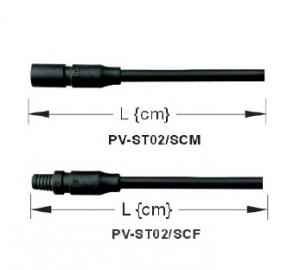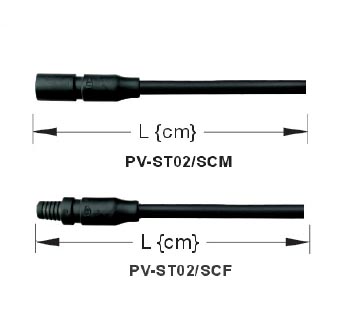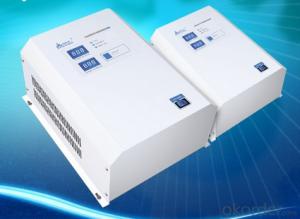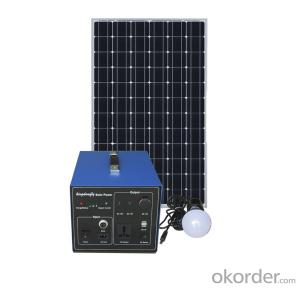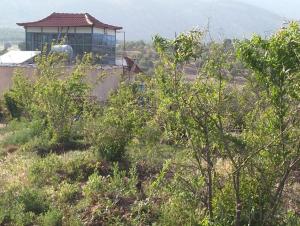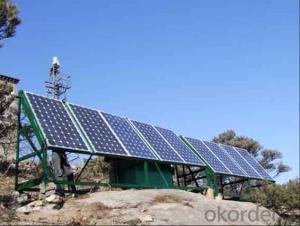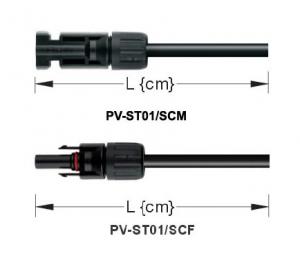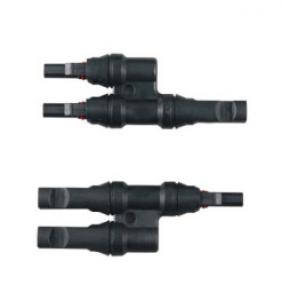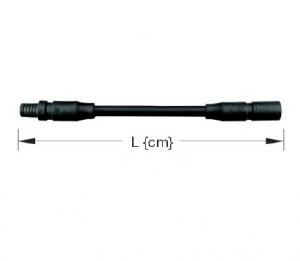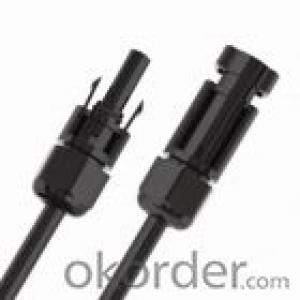Ses Solar Energy Systems PV-ST02 SCM SCF Solar Cable Connector
- Loading Port:
- China Main Port
- Payment Terms:
- TT OR LC
- Min Order Qty:
- -
- Supply Capability:
- 10000 set/month
OKorder Service Pledge
OKorder Financial Service
You Might Also Like
Solar Cable-Connectors,Due to highly robustness,UV-resistance,the touch protection a high grade connection is guaranteed for many years
Rated voltage 1000 V
Rated current 20A
Dia.of pin or socket 3mm
Protection degree(mated,junction box closed/unmated) IP67/IP2X
Operating temperature -40 °c to +85 °c
Contact material Copper,silver plated
Cable cross on request: 2.5mm2 4mm2
- Q: Can solar energy systems be used in powering religious institutions like churches or temples?
- Yes, solar energy systems can certainly be used to power religious institutions like churches or temples. In fact, solar power is an ideal solution for these buildings as they often have large roofs that can accommodate solar panels. By installing solar energy systems, religious institutions can significantly reduce their electricity bills, save money, and become more sustainable. Solar panels generate electricity by converting sunlight into usable energy. This energy can be used to power the lighting, heating, cooling, and other electrical needs of the religious institution. With advancements in solar technology, it is now possible to store excess energy in batteries, ensuring uninterrupted power even during cloudy days or at night. Using solar energy not only reduces the operational costs of the religious institution but also helps in reducing its carbon footprint. By reducing dependency on fossil fuels, solar power systems contribute to mitigating climate change and promoting environmental stewardship. This aligns with the core values of many religious organizations that emphasize the importance of environmental sustainability and being responsible stewards of the Earth. Furthermore, solar energy systems can serve as a visible example of the religious institution's commitment to sustainable practices, inspiring its members and the wider community to adopt renewable energy solutions. By utilizing solar power, religious institutions can demonstrate their dedication to caring for the planet and encouraging others to follow suit. In summary, solar energy systems can be successfully used to power religious institutions like churches or temples. They offer an environmentally-friendly and cost-effective solution that aligns with the values of many religious organizations. By embracing solar power, these institutions can reduce their energy costs, promote sustainability, and inspire their members and the community to adopt clean energy solutions.
- Q: How does the location of a solar energy system affect its performance?
- The location of a solar energy system significantly affects its performance. Solar panels function optimally in areas with abundant sunlight and minimal shading. Regions with high levels of direct sunlight, such as deserts or open plains, are ideal for maximizing solar energy production. Additionally, the tilt and orientation of the panels should be optimized to capture the most sunlight throughout the day. Factors like latitude, climate, and local weather patterns also play a role in determining the efficiency of a solar energy system. Ultimately, choosing the right location can greatly enhance the overall performance and output of a solar energy system.
- Q: Can solar energy systems be used in powering theme parks or water parks?
- Yes, solar energy systems can certainly be used to power theme parks or water parks. These types of parks consume a significant amount of energy due to lighting, water pumps, rides, and various other facilities. Solar panels can be installed on rooftops, parking lots, or dedicated areas to harness sunlight and convert it into electricity. This renewable energy source can help reduce operating costs, decrease carbon emissions, and promote sustainability in the entertainment industry.
- Q: How does a PV system convert sunlight into electricity?
- A PV system, also known as a solar panel system, converts sunlight into electricity through the use of photovoltaic cells. These cells are made of semiconducting materials, typically silicon, which have the ability to convert sunlight directly into electricity. When sunlight hits the surface of the PV cells, it excites the electrons within the material, causing them to flow, creating an electric current. This current is then captured and harnessed by the system, allowing it to be used as electricity for various purposes.
- Q: Can solar panels be used to power agricultural irrigation systems?
- Yes, solar panels can be used to power agricultural irrigation systems. Solar energy can be harnessed and converted into electricity to power water pumps and other irrigation equipment, providing a sustainable and reliable source of power for agriculture. This helps reduce reliance on traditional energy sources and contributes to more environmentally friendly farming practices.
- Q: Can a solar energy system be used to power electric vehicles?
- Yes, a solar energy system can be used to power electric vehicles. Solar panels can be installed on a roof or any other suitable surface to capture sunlight and convert it into electricity. This electricity can then be used to charge the batteries of electric vehicles, providing a clean and renewable source of energy. In fact, many people have already started using solar energy to power their electric cars, creating a sustainable and eco-friendly transportation solution. Additionally, advancements in solar technology have made it more efficient and cost-effective, making it an increasingly viable option for powering electric vehicles.
- Q: Can solar energy systems be used in powering manufacturing plants?
- Yes, solar energy systems can be used to power manufacturing plants. By installing solar panels and utilizing solar energy, manufacturing plants can reduce their reliance on traditional fossil fuel-based electricity and significantly lower their carbon footprint. Solar energy systems can provide a sustainable and renewable source of power for various manufacturing processes, helping to promote cleaner and more environmentally friendly production methods.
- Q: What is the efficiency of a solar energy system?
- The percentage of sunlight that a solar energy system is able to convert into usable electricity is what we refer to as its efficiency. This measure shows how effectively the system can harness and convert solar energy into electrical power. The efficiency of a solar energy system can vary based on several factors, including the type of solar panels used, the location and orientation of the panels, weather conditions, and the overall design and quality of the system. Commercially available solar panels typically have efficiencies ranging from 15% to 22%. This means that only a portion of the sunlight that reaches the panels is converted into electricity, while the rest is either reflected or lost as heat. However, ongoing advancements in solar technology have resulted in experimental panels that have achieved efficiencies exceeding 40%. It is worth noting that the efficiency of a solar energy system does not solely determine its overall effectiveness. Other factors, such as the cost, durability, and maintenance requirements of the system, also play a significant role in determining its overall value. Additionally, maximizing the efficiency of a system can be achieved through careful installation optimization, regular panel cleaning, and ensuring minimal obstructions to sunlight. To summarize, the efficiency of a solar energy system measures its ability to convert sunlight into electricity. While commercially available panels typically have efficiencies between 15% and 22%, ongoing technological advancements continue to improve this figure. However, other factors like cost, durability, and maintenance requirements should also be considered when evaluating the effectiveness of a solar energy system.
- Q: What is the impact of shading on the performance of solar panels?
- Shading has a significant impact on the performance of solar panels. When any part of a solar panel is shaded, it reduces the amount of sunlight that reaches the cells, resulting in a decrease in energy production. This is because solar panels operate by converting sunlight into direct current (DC) electricity through the photovoltaic effect. When a solar panel is partially shaded, it creates what is known as a "hotspot effect." This occurs when shaded cells within a panel become a high-resistance pathway for the flow of electricity, leading to a localized increase in temperature. This increased heat can degrade the performance of the entire panel and reduce its overall efficiency. Furthermore, shading also affects the panel's overall voltage and current output. Solar panels are typically connected in series to increase the output voltage. However, if even a single panel is shaded, it can significantly reduce the performance of the entire series-connected string. This is because the shaded panel acts as a bottleneck, limiting the current flow through the entire string. To mitigate the impact of shading, various solutions can be implemented. One common approach is to use bypass diodes, which allow the current to flow around the shaded cells, preventing the hotspot effect. By incorporating bypass diodes, the energy loss due to shading can be minimized, ensuring that the rest of the solar panel continues to operate efficiently. Additionally, proper design and placement of solar panels can also help reduce the effects of shading. Installing solar panels in areas with minimal obstructions or shadows, such as rooftops or open fields, can maximize their exposure to sunlight. Regular maintenance, including trimming nearby trees or vegetation that may cast shadows, is also important to ensure optimal performance. In conclusion, shading has a significant impact on the performance of solar panels, leading to reduced energy production and efficiency. Understanding and addressing shading issues through the use of bypass diodes and careful installation can help maximize the output and effectiveness of solar panel systems.
- Q: Can solar energy systems be used for powering off-grid eco-lodges?
- Yes, solar energy systems can be effectively used for powering off-grid eco-lodges. Solar panels can be installed on the roofs of eco-lodges to harness the energy from the sun and convert it into electricity. This renewable source of energy can then be used to power various electrical appliances, lighting, heating, and cooling systems in the eco-lodges. Additionally, solar energy systems can also incorporate battery storage to store excess energy for use during cloudy or nighttime conditions. This sustainable solution not only reduces the reliance on fossil fuels but also minimizes the environmental impact of off-grid accommodations.
Send your message to us
Ses Solar Energy Systems PV-ST02 SCM SCF Solar Cable Connector
- Loading Port:
- China Main Port
- Payment Terms:
- TT OR LC
- Min Order Qty:
- -
- Supply Capability:
- 10000 set/month
OKorder Service Pledge
OKorder Financial Service
Similar products
Hot products
Hot Searches
Related keywords
